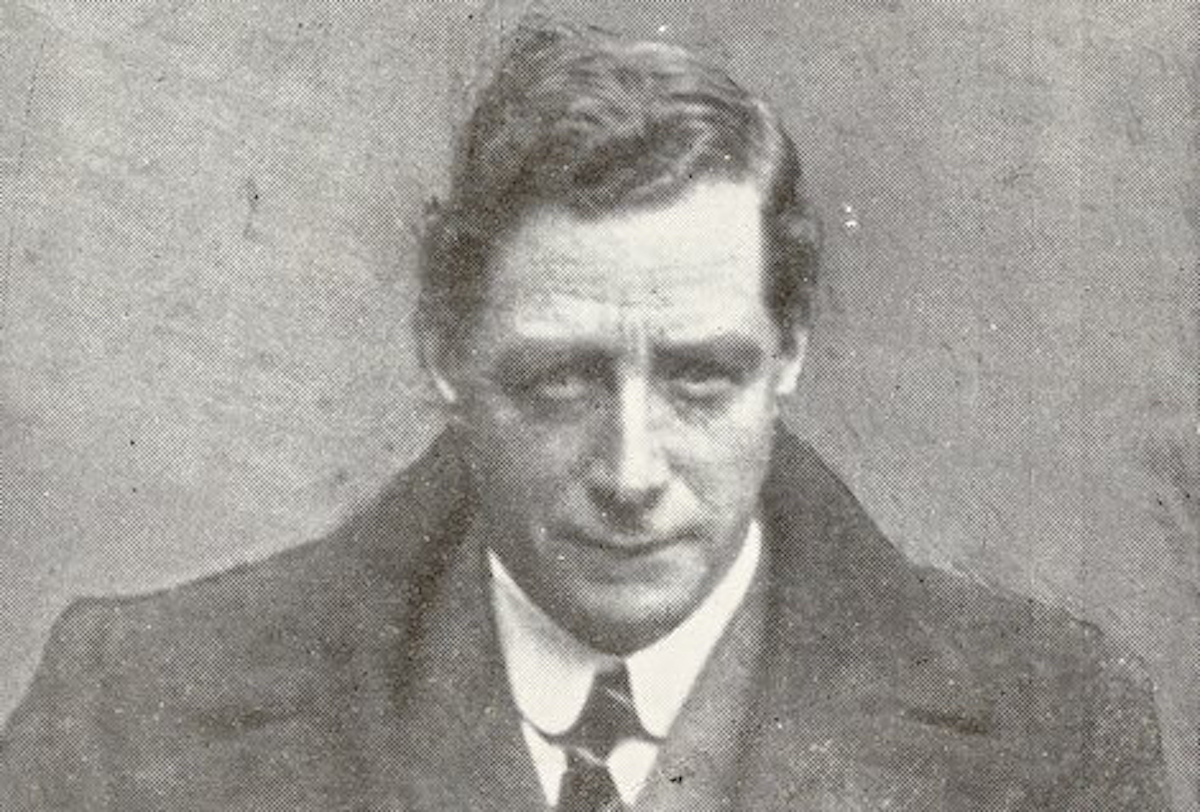
Cathal Brugha was born Charles William St. John Burgess in Dublin on 18 July, 1874. He adopted the Irish version of his name as his nationalist views took hold after he joined the Gaelic League in 1899.
His nationalist views became stronger over the next 10 years and he became involved in the Irish Republican Brotherhood. In 1914, he was the commanding officer of 20 Volunteers in the mission to collect arms that had been smuggled into Ireland at Howth near Dublin.
Brugha fought in the Easter Rising in 1916 under the command of Éamonn Ceannt at the South Dublin Union. When the rebels were forced to surrender, Brugha had already been shot.
He was too weak to stand and ordered his troops to flee as the British fired shells and machine guns at the building. Ceannt went back for Brugha and reportedly found him lying at a window shooting his pistol at the British while singing ‘God Save Ireland’.
Ceannt managed to get Brugha out safely as the rebels surrendered. It was thought that he would die from his injuries but he made a recovery over the next year, although he was left with a limp.
A year later Brugha initiated the merger of the Irish Volunteers and the Irish Citizen Army to create the Irish Republican Army.
He became the IRA’s Chief of Staff and was then elected as the MP for County Waterford in the British General Election of 1918, after standing as a Sinn Féin representative.
Sinn Féin refused to accept they were part of the British parliament and instead began setting up their own assembly. In 1919, party leader Éamon de Valera and Arthur Griffiths were out of the country so Brugha chaired the first ever Dáil Éireann meeting.
He had the honour of reading out the Declaration of Independence in Irish, confirming the independence of the Irish Republic, even though the country remained under British rule at the time.
When the Anglo-Irish Treaty was in the early stages of negotiation in 1921, Brugha strongly opposed it. The signing of the treaty prompted the outbreak of the Irish Civil War, with the IRA split into pro-treaty and anti-treaty factions, with the pro-treaty side receiving assistance from the British to control the institutions of the ‘Free State’.
Brugha sided with the anti-treaty side but continued to seek to avoid a civil war. When the leaders took control of the Four Courts building in Dublin, Brugha was ordered to hold the area around O’Connell Street to take the pressure off the Four Courts.
Most of the anti-treaty fighters escaped from O’Connell street when the buildings they were holding caught fire, leaving Brugha in command of a small rearguard. On 5 July he ordered his men to surrender.
He then approached the Free State troops, brandishing a revolver in each hand. He sustained a bullet wound to the leg by a sniper’s bullet.
Linda Kearns witnessed the wounding of Cathal Brugha, who had refused to surrender to the forces of the new state. She held his severed artery between her fingers as he was driven to hospital, but he would die two days later.
He died on 7 July 1922, just 11 days before his 48th birthday. Cumann na mBan activists stood guard over Brugha when his body lay in state.
He is remembered in the words of the classic Easter 1916 song, ‘The Foggy Dew’.
“Twas England bade our wild geese go, that ‘small nations might be free’; Their lonely graves are by Suvla’s waves or the fringe of the great North Sea. Oh, had they died by Pearse’s side or fought with Cathal Brugha Their graves we’d keep where the Fenians sleep, ‘neath the shroud of the foggy dew…”
![[Irish Republican News]](https://republican-news.org/graphics/title_gifs/rn.gif)
![[Irish Republican News]](https://republican-news.org/graphics/title_gifs/harp.gif)

